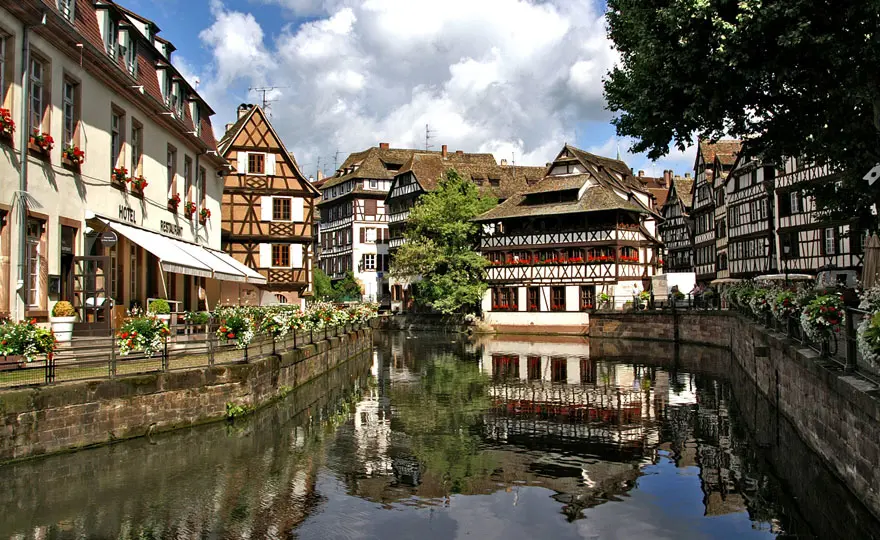ClientEarth Communications
2nd July 2019


On 4 June 2019 Dunja Mijatović, the Commissioner for Human Rights, released a comment on the connection between human rights and the environment. This is only the second time in ten years a Commissioner for Human Rights, this independent and impartial non-judicial institution established by the Council of Europe to promote awareness of and respect for human rights in its Member States, makes this link.
In 2009, Thomas Hammarberg, the Commissioner at that time, stated that “A human rights analysis would, indeed, add important perspectives to the negotiations on measures against climate change. Not least, it could help to clarify the concrete consequences on the daily lives of people and thereby remind us that climate change is about human suffering.”
Mijatović’s statement was published for the World Environment Day and it appears that the momentum around air pollution encouraged her to raise her voice for the first time in the debate on environmental matters. However, air pollution was just a starting point and the opportunity to present a well-conceived opinion on actions the Member States of the Council of Europe should take to effectively protect human rights and the environment.
In her statement, she underlines that environmental degradations are causing constant and serious violations of the European Convention on Human Rights, such as the right to life (Article 2), the prohibition of torture (Article 3) or the right to respect for private and family life and home (Article 8).
The Commissioner also refers to rights in the European Social Charter, like the right to health, which the European Committee of Social Rights, in charge of monitoring compliance with the Charter, interpreted in a way which includes the right to a healthy environment. She encourages Member States to explicitly recognise this right to “help raise awareness about the dramatic human rights impact of environmental pollution.”
She further supports a range of initiatives fighting for the right to a clean environment and insists on the fact that decision makers should paid more attention to the work of environmental activists, which should be simplified by guaranteeing their freedom of expression and assembly (as provided by Article 10 and 11 of the Convention).
Her call is not limited to the protection of ecological activists as she strongly calls upon the states to ratify the Aarhus Convention and, if already a party to the Convention, secure the rights included there. She highlights the importance of ensuring a good implementation of the right to access information, to participate in the decision-making and access to justice in environmental matters. Furthermore, she also targets the Council of Europe itself, which she pushes to swiftly execute the judgments of the European Court of Human Rights related to environmental matters.
With this declaration, the Commissioner strengthens the link between human rights and the environment. If environmental protection was already on the agenda of the Council of Europe, (through the European Landscape Convention and the Convention on the Conservation of European Wildlife and Natural Habitats) or via recommendations from its Parliamentary Assembly ( “Drafting an additional protocol to the European Convention on Human Rights concerning the right to a healthy environment”; “Challenges posed by climate change”; “Environmentally induced migration and displacement: a 21st-century challenge”) these actions were taken a while ago. Since then, only the European Court of Human Rights has been involved in the debate on the interaction between environmental protection and human rights.
From an access to justice perspective, this comment’s main value lies in a straightforward call to ratify the Aarhus Convention as six Member States of the Council of Europe still haven’t done so.
And even if the European Court of Human Rights applies the standards of the Aarhus Convention in a ruling against a state which hasn’t ratified it, only a ratification of the Convention will allow the public of such a state to submit a communication to the Aarhus Convention Compliance Committee. As the environmental NGOs still do not have legal standing in every Member States before the courts, the Aarhus Committee is for them a unique platform to have their voice heard.
The other important conclusion is an appeal to recognise the right to a healthy environment, which could be derived from the European Convention on Human Rights. Although the European Court of Human Rights has not yet found that such a right could be interpreted directly from that Convention, some of the dissenting and concurring opinions argued differently, such as in case Konstantin Markin v. Russia (case no. 30078/06), judgment of 22 March 2012 and case Hatton and The Others v. the United Kingdom (case no. 36022/97), judgment of 8 July 2003
Let’s hope that other institutions from Strasbourg will follow the Commissioner for Human Rights and show their commitment to human rights and the environment… Let’s also hope that they will not wait for World Environment Day 2020 to do so.
Access to Justice is a fundamental means through which citizens and NGOs can support the implementation and enforcement of laws and policies to protect the environment. The goal of this ATOJ-EARL project is to achieve “Access to Justice for a Greener Europe”. It strives to enhance access to justice in environmental matters by providing information, training and support for the judiciary, public authorities and lawyers of eight European member states. ClientEarth and Justice and Environment are implementing this project with the financial support of the European Commission’s LIFE instrument.
